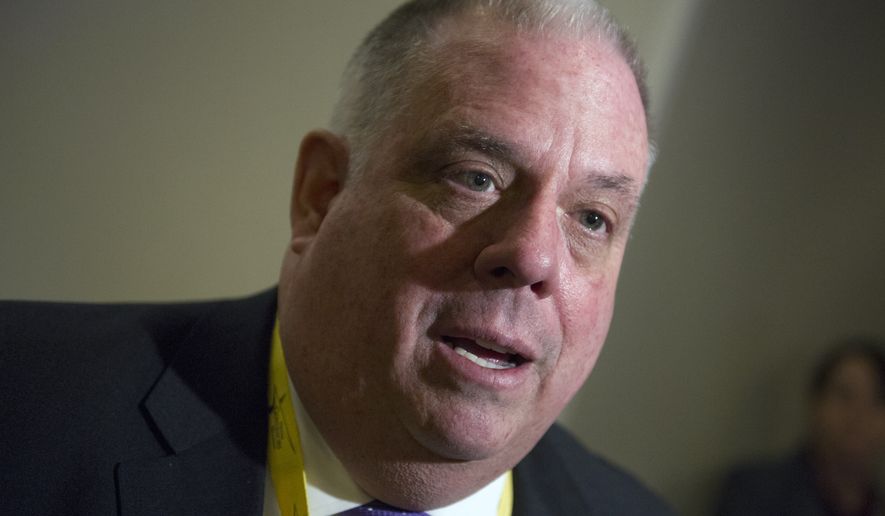ANNAPOLIS | The Democratic-led Senate advanced Republican Gov. Larry Hogan’s proposed spending plan Wednesday with little floor debate, a sign of the budget’s expected easy passage in the chamber on Friday.
The $42.3 billion budget, generally a source of contention between the two parties over spending goals, has experienced relatively smooth sailing after Mr. Hogan presented a supplemental budget that provides more funds for Democratic priorities, such as Baltimore public schools. Once passed, the budget will head to the House of Delegates for approval.
The Senate Budget & Taxation Committee unanimously approved the budget last week, and only two amendments were proposed on the Senate floor Wednesday morning. Both, introduced by Republicans, were defeated.
Sen. Justin D. Ready, Carroll Republican, offered an amendment to restore a Hogan provision in the original budget to give $53.5 million to local governments for highway funding. The committee instead put that money into state projects.
Sen. Robert G. Cassilly, Harford Republican, sought to remove language to allow women at risk of mental health problems to seek an abortion, arguing that the state should not be in the business of funding abortions.
The budget faced few objections, though state Sen. Joan Carter Conway, Baltimore Democrat, said she was “majorly concerned” about a committee amendment to give Baltimore schools only $10 million if the city matches that amount, wondering if the city would be able to match it.
Senate President Thomas V. Mike Miller, Calvert Democrat, said that Democratic leaders have agreed to a legislative package that will “wow” her and give Baltimore greater attention in the budget.
The package of nine bills in the “wow” package, which will cost roughly $290 million, includes proposals to keep Baltimore libraries open 12 hours a day all week, fund afterschool and summer programs for children and incentivize “anchor institutions” like universities to open campuses and revitalize blighted neighborhoods.
“It’s a step forward to make a great city greater,” Mr. Miller said, arguing that the state can afford it. The state has a roughly $400 million surplus this year.
One of the more highly touted bills would fund full college scholarships to low-income students who sign up for the program in eighth grade, so long as they meet certain requirements such as maintaining at least a 2.5 GPA and not using drugs.
Other proposals include pushing forward on a demolition and redevelopment plan in Baltimore, initially introduced by Mr. Hogan, and put more than $12 million a year in incentive grants to lure businesses to ramshackle areas of the city.
Mr. Miller also mentioned millions in funding to help the city build new parks.
House Speaker Michael E. Busch, Anne Arundel Democrat, said the bills would bring stability and structure to Baltimore following April’s unrest.
“It’s an opportunity to show the country, if you will, that you can have a renaissance in these urban communities that seem to have fallen on hard times,” Mr. Busch said. “Baltimore can be an example of how to create a renaissance and a rebirth of your urban areas.”
The bills are not part of a new Democratic initiative: Three of the bills in the so-called Baltimore package have already passed through the House, and the remaining six are likely to make it through the chamber before Monday’s crossover deadline.
Hogan spokesman Matthew A. Clark said the governor supports such ideas but is not eager for the legislature to mandate spending to pay for the programs.
Mr. Busch said most of the programs with mandates would be funded for only five years, at which point the legislature could opt out of mandating it again — but Baltimore deserves the state’s help.
“Baltimore is still the mother city,” he said. “It supported the rest of the state for well over a century.”
Mr. Clark said Baltimore receives a disproportionate amount of the state’s aid already.
“Currently, Baltimore city receives a fifth of all local aid in the state budget, a third of the state’s capital budget and is a beneficiary of 62 percent of state transportation grants to local government,” he said.
• Anjali Shastry can be reached at ashastry@washingtontimes.com.




Please read our comment policy before commenting.